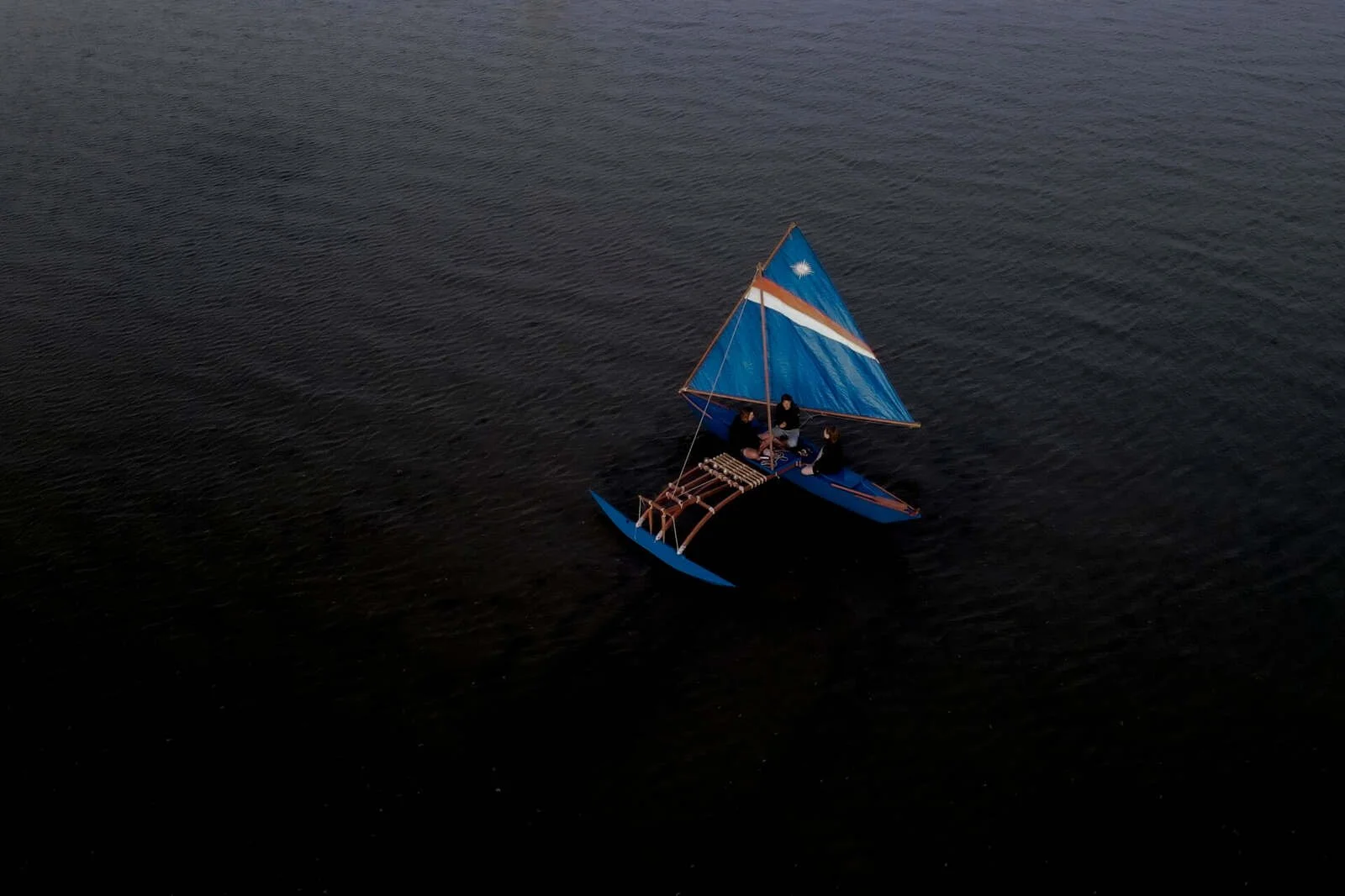Deep Meaning of Voyaging
Esther Kokmeijer
Deep Meaning of Voyaging
(Ongoing project about wave navigation and other traditional navigation methods /
2018-ongoing)
~
Due to sea level rising, there are many islands and even complete nations in The Pacific in danger of disappearing. It’s not just the shoreline which gets eaten by the sea, also salt water bubbles up on land through the porous coral base, making the groundwater undrinkable and the soil to saline for growing crops. More then ever it seems important for the inhabitants of the Pacific Ocean-scape to unite and transmit cultural and empirical knowledge of the ocean, which could get lost if forced migration. Pacific seafarers developed indigenous navigational techniques to voyage between islands relying primarily on the sun, stars and winds. One of the least and last understood navigation traditions comes from the Marshall Islands of Micronesia, where navigators remotely sense land by detecting how islands disrupt swells. The ‘navigators’ use elaborate mental representations of space, embodied knowledge of the ocean and voyaging strategies. Basically they could ‘read’ the waves. This knowledge was recorded in stick charts: schematic sea charts in which sticks indicate patterns of swell, currents and waves around the islands. The charts were used as a tool to transfer knowledge, and not necessarily as an orientation tool at sea because wave navigators rely on their senses for orientation.
This knowledge and skill is almost extinct. At a certain moment there was not any sailing outrigger canoe left on the Marshall Islands and officially there is ‘present time’ nobody with the title of ‘navigator’. Currently the traditional knowledge is undergoing a revival, initiated by grassroots organizations and in collaboration with scientists and activists from the diaspora. This involves the revitalization of knowledge and culture, but also the conviction that sustainable alternatives are included for the legacies of the disastrous approach to nature through colonialism and the global capitalism that the region today struggles. Regarding to this revitalization, the most important person in the Marshall Islands is Alson Kelen. He is a canoe builder, climate change activist and director of the Waan Aelõñ in Majel (WAM) programme, based on Majuro, Marshall Islands. Alson Kelen is addressed by the chief of the Marshall Islands, as the ‘knowledge keeper’ regarding wave navigation and the building of traditional outrigger canoes, both enclose sacred knowledge. Dealing with climate change and the challenges that the Marshal Islands are facing, he tries to make a bridge between the contemporary world and the indigenous culture, knowledge and heritage.
In June 2017, I met Alson Kelen for the first time in Boston. Scientist from different parts of the world, Gerbrant van Vledder(Oceanography, Delft University of Technology), John Huth(experimental particle physicist and expert on navigational techniques at Harvard University and member of the ATLAS, CERN), Joseph Genz (Anthropologist, Cultures of Oceania at the University of Hawaii) and Alson Kelen, teamed up to study and articulate the similarities and differences between local and Western scientific knowledge of the ocean to reveal differences in terminology or discrepancies between instrument sensitivity and human perceptions.
As a contemporary artist, I was invited by Gerbrant van Vledder to join this research team during a one week collaboration at Rad Cliffe institute for advanced study at Harvard University in Boston. For a few years now, I collaborate with scientists and other professionals from different background. I’m interested in how art and science can reinforce each other. With these collaborative projects I intent to open up alternative routes to lucid and ‘visual comprehension’ of scientific research.
One aspect of wave navigation and navigation with natural resources in general, is the essential connection with your surroundings. I believe that if we would find back our connection and understanding of ‘our natural surrounding’ that we would care more for the Earth. I think that learning from indigenous knowledge systems can help us to deepen this connection. Also I’m interested in the consistency between mysticism and science.
On invitation by Alson Kelen and with a grant from the Mondrian FundI undertook a journey to the Marshall Islands in March and April 2018, to create works for my solo exhibition'Solid, Liquid, Vapour' curated by Anke Bangma, in the summer of 2018 in Tent Rotterdam in The Netherlands. The outcome exists of multiple works and a series of photographs. (See below)
During my stay at the Marshall Islands, Dustin Langidrik, managing director of Okeanos Marshall Islands, invited me for a voyage from 10 days to some outher islands, one of the destinations was the annual meeting of the majors of the Marshall Islands. Okeanos is building a fleet of sailing canoes (vakas), using only green energy – wind, sun and coconut-oil. Dustin Langidrik and his crew deliver food, school supplies and other goods to remote island communities, and participate in sailing competitions to advocate for the environment and the Marshallese culture of sailing.
In October 2018 I invited Isocker Anwell, a canoe builder from the Marshall Islands workin g at WAM, to come over to The Netherlands to build a traditional outrigger canoe during the exhibition ‘Climate as Artefact’ at the Electriciteitsfabriekin The Hague, organised by Satellietgroep. Starting point for this exhibition: What can we learn about a different, more sustainable relationship to our natural environment, and will this bring more solidarity with the landscape? Together with Isocker Anwelland Henrik Richter, German boat builder engineer, we build in two weeks a contemporary traditional outrigger canoe during the opening times of the exhibition. The canoe is build with the intention to be used for several projects that deal with the sea, sustainable transport, climate change, the importance of traditional knowledge and the connection with the natural environment.
To be continued...
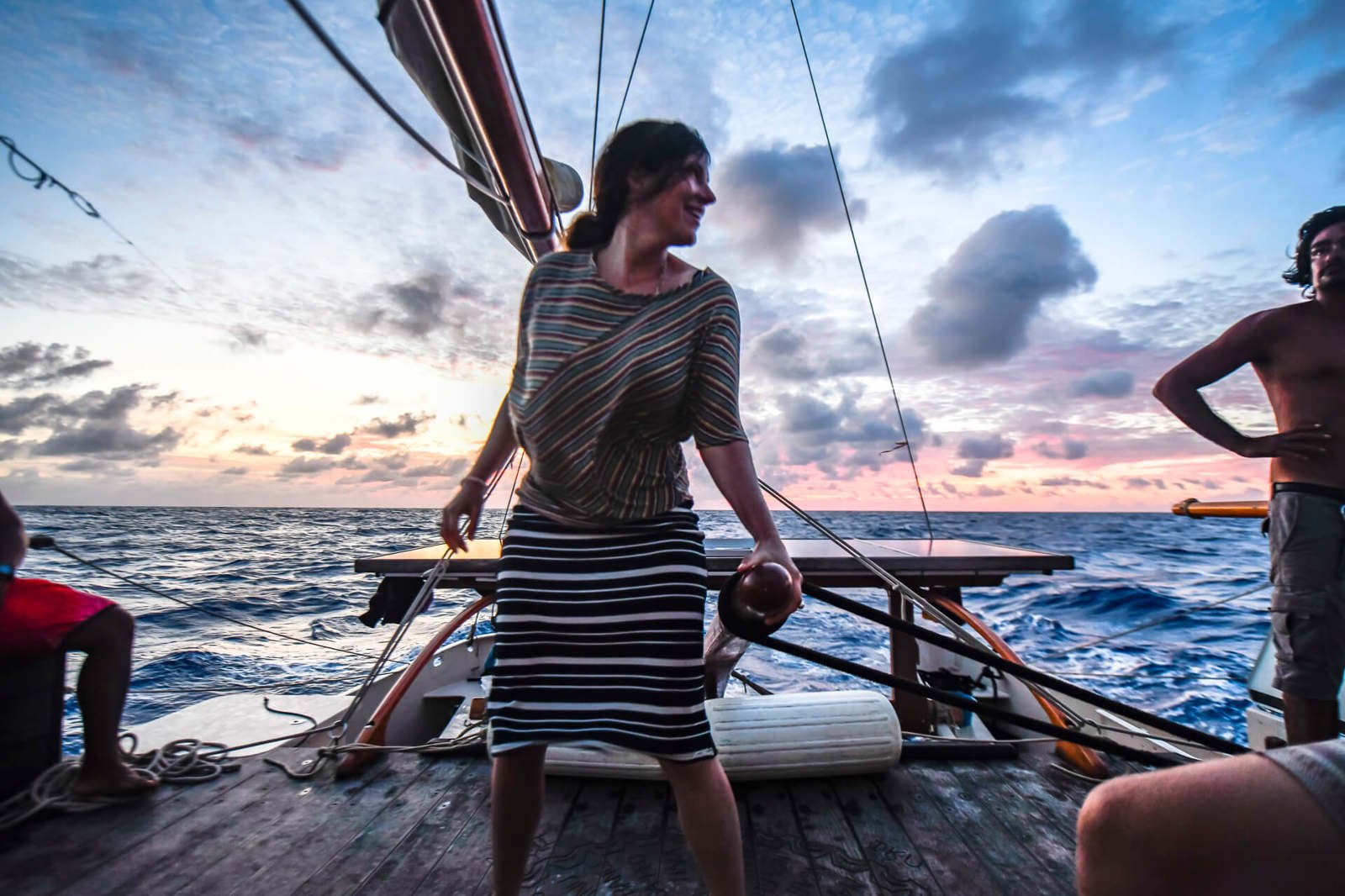
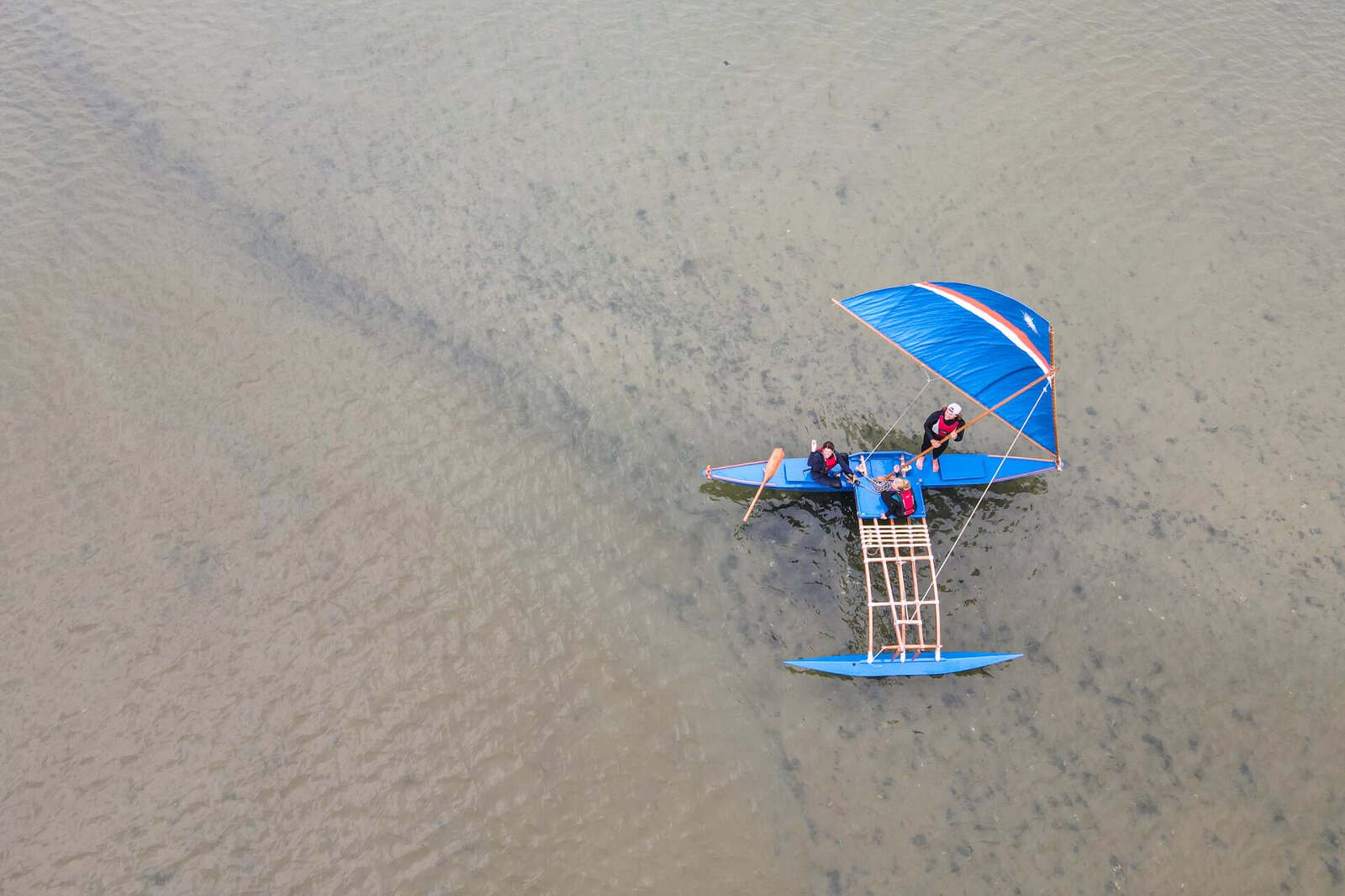


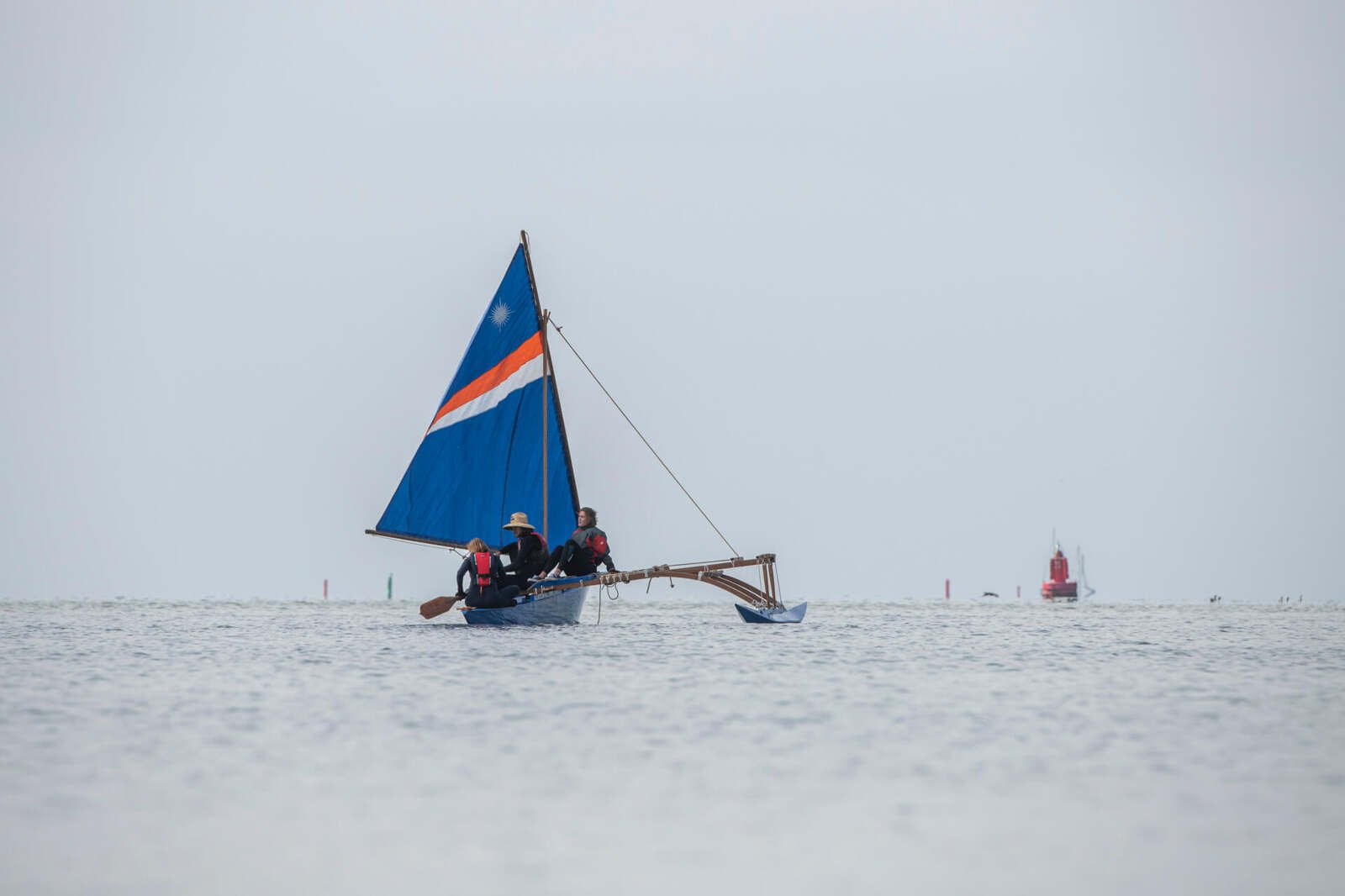

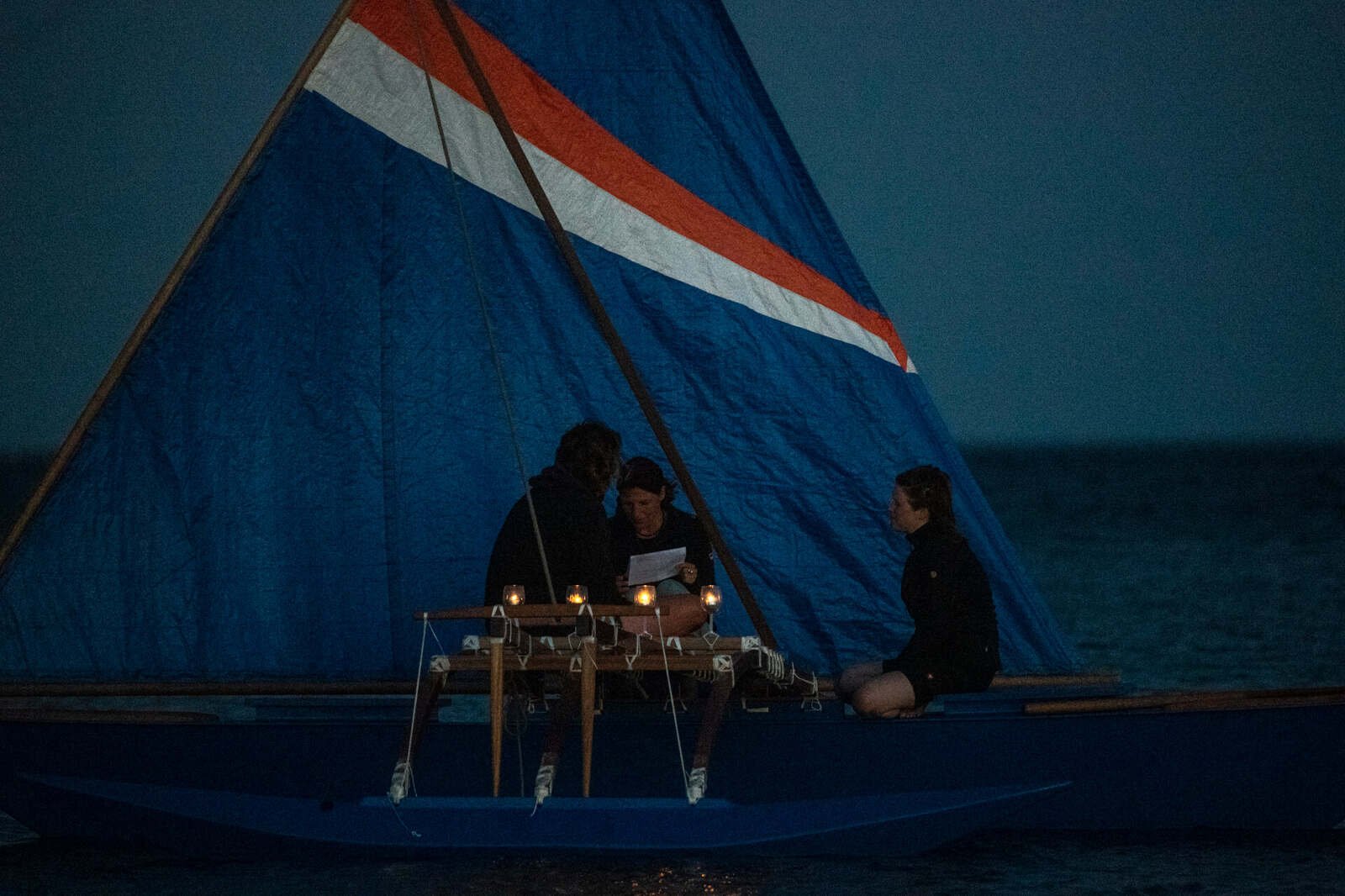
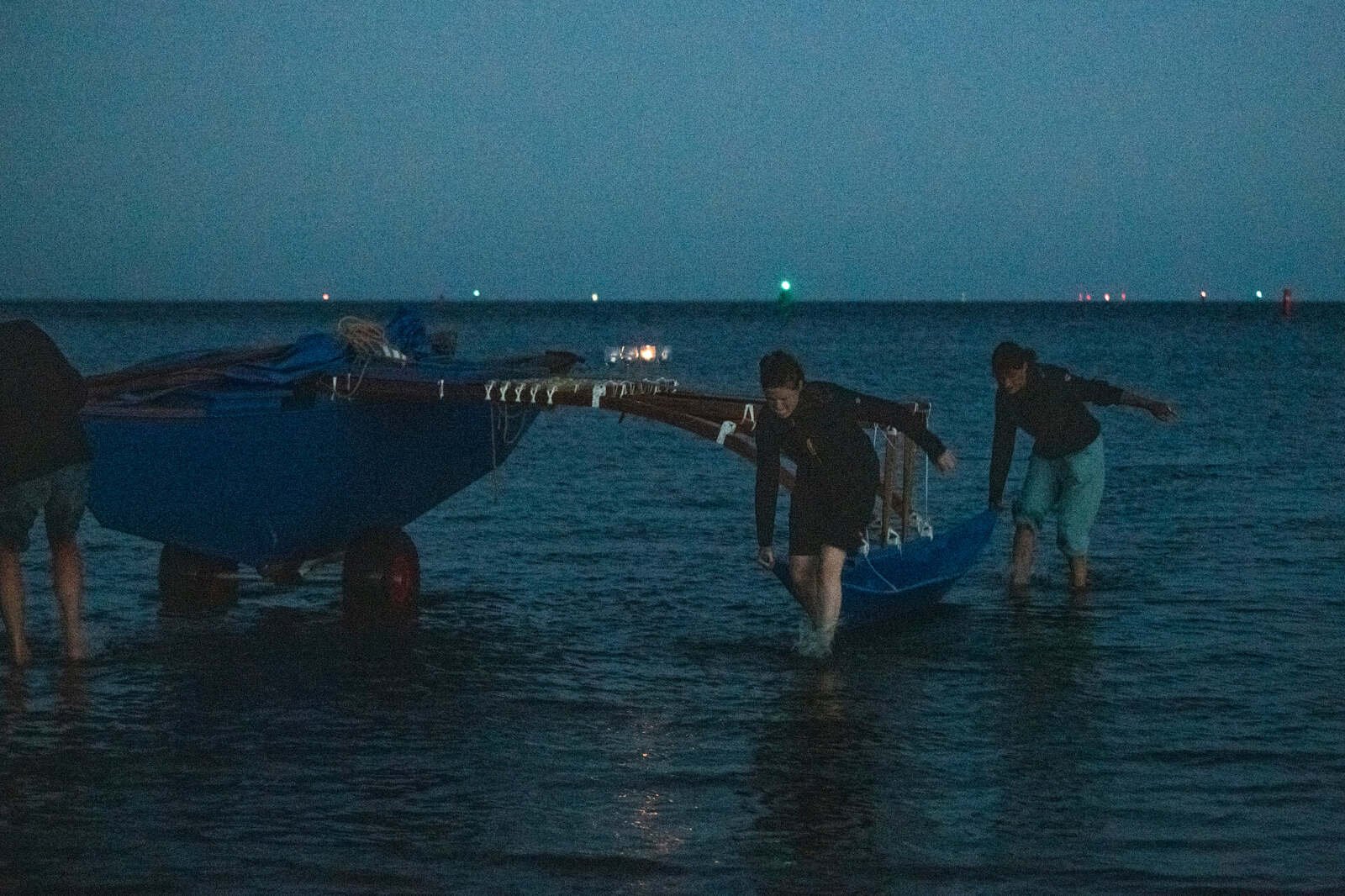

Oerol 2021 and 2022 / High tide presentations, Story telling and taking people on the water at the Waddensea.
Oerol is an annual ten-day site-specific arts festival on Terschelling. It serves as a meeting point where diverse perspectives and generations converge, fostering connections and meaning for a broad (international) network.
Memoriam Sail
During the twilight, Henrik Richter-Alten, Marin de Boer and Esther Kokmeijer sailed in memoriam of Gerbrant van Vledder (Oceanologist), Joop Mulder (Founder of Oerol) and Rakimi (Marshallese Sailer). We sailed with four candles, for each of them one and the fourth one is for all climate refugies affected by the rising of the sea level.
—
With many thanks to Henrik Richter-Alten Anke Bangma, Jacqueline Heerema, Wonu Veys; Gerbrant van Vledder; Alson Kelen, Waan Aelõñ in Majel programme, Marshall Islands; Dustin Langidruk, Okeanos, Marshall Islands.
Exhibited at the solo exhibition 'Solid, Liquid, Vapour' at Tent in Rotterdam, curated by Anke Bangma
Exhibited at the group exhibition 'Climate as Artefact' Electriciteitsfabriek in The Hague, organised by Satellietgroep, curated by Jacqueline Heerema
Made possible with the support of the Mondriaan Fund.
2018 Filed under water project artistic research

